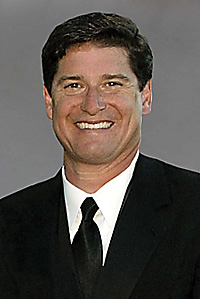POWAY, Calif. - ResMed plans in September to implement strict new quidelines--including mandatory minimum pricing--intended to bring law and order to the Wild West approach some online retailers take when selling CPAPs.
"We are going to be strict about enforcement of our Internet policy," said Hillary Theakston, director of communications. "If we find that an Internet dealer is not in compliance, then we will stop selling to them; it's as straight forward as that,"
At issue: Online retailers who sell CPAPs at prices so discounted that they can't afford to offer follow-up service, maintenance or education. The result: Very low compliance.
"We view this as a quality issue," added Stefan Elterich, vice president of
sales, North America. "If the follow up care isn't there, it ultimately
reflects on our products and the quality of therapy they provide. From that
standpoint, this policy serves our interests in providing high quality
therapy."
ResMed estimates that currently about 5% of all CPAP business occurs over the Internet. But as this distribution channel grows and competition increases, the company wants to ensure that patient care is not sacrificed, Elterich added.
Bricks and mortar providers, especially those selling power wheelchairs, have long complained that while Internet retailers often offer great prices because of their reduced overhead, some give little in the way of after-sale service. To counter this, a number of manufacturers have set minimum standards for service and maintenance and don't sell product to any provider--Internet or bricks-and-mortar--who doesn't meet those standards. (See HME News 5/2002).
Several manufactures of sleep products either declined to comment or did not return phone calls for this story. Invacare's vice president of sleep, Ann MacGregor, however, call ResMed's policy "a good thing."
"In every major conversation among manufacturers over the past four years, I've heard complaints that patients end up showing up on at a provider's door because they can't get care from the online seller," McGregor said. "It is commonplace."
Invacare doesn't do a lot of CPAP business with online providers and has not developed a sales and service policy, she said.
In addition to strictly enforcing its suggested retail price, ResMed expects Internet providers to use marketing material as intended, not to resell products intended for the U.S market internationally and to offer education, information and a support team that patients can contact for help.
One Internet provider of CPAP speculated that ResMed implemented the new policy to appease bricks-and-mortar customers upset at losing business to lower-priced Internet providers. ResMed officials denied the charge.
"They look at us as trailer trash or that we stick it in a box and just ship it out, and we don't," said the Internet provider, who asked not to be identified. "They are coming down hard on us."
Tracy Nasca is senior vice president of Talk About Sleep, a resource Internet site for people with sleep disordered breathing that also sells CPAPs. ResMed's new policy, she said, levels the playing field. Some Internet retailers sell products for less than she can buy them.
"We don't offer our retail store just to make a buck," she said. "Or mission is to provide education, information and support. That is the difference between my organization and people who inventory things in their basement and extra bedrooms and just sell on line."




Comments